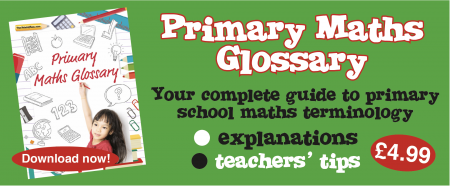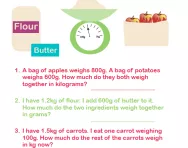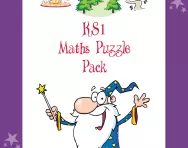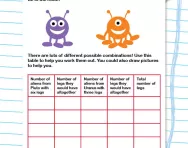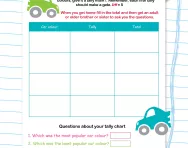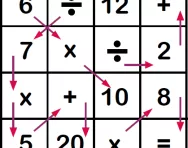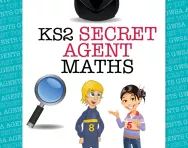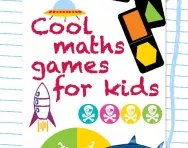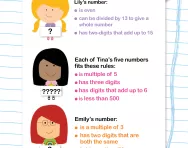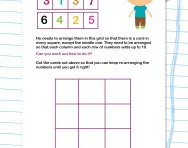Important update from TheSchoolRun
For the past 13 years, TheSchoolRun has been run by a small team of mums working from home, dedicated to providing quality educational resources to primary school parents. Unfortunately, rising supplier costs and falling revenue have made it impossible for us to continue operating, and we’ve had to make the difficult decision to close. The good news: We’ve arranged for another educational provider to take over many of our resources. These will be hosted on a new portal, where the content will be updated and expanded to support your child’s learning.
What this means for subscribers:
- Your subscription is still active, and for now, you can keep using the website as normal — just log in with your usual details to access all our articles and resources*.
- In a few months, all resources will move to the new portal. You’ll continue to have access there until your subscription ends. We’ll send you full details nearer the time.
- As a thank you for your support, we’ll also be sending you 16 primary school eBooks (worth £108.84) to download and keep.
A few changes to be aware of:
- The Learning Journey weekly email has ended, but your child’s plan will still be updated on your dashboard each Monday. Just log in to see the recommended worksheets.
- The 11+ weekly emails have now ended. We sent you all the remaining emails in the series at the end of March — please check your inbox (and spam folder) if you haven’t seen them. You can also follow the full programme here: 11+ Learning Journey.
If you have any questions, please contact us at [email protected]. Thank you for being part of our journey it’s been a privilege to support your family’s learning.
*If you need to reset your password, it will still work as usual. Please check your spam folder if the reset email doesn’t appear in your inbox.
What are mathematical investigations?

What are mathematical investigations?
Throughout their time at primary school, there is a large emphasis on children applying the skills and knowledge they have learnt to problem-solving and carrying out investigations. The thinking behind this is that children will be best equipped to deal with mathematical situations in real life if they have practised plenty of these 'real-life' scenarios at school.
In word problems or story problems a child is given a 'real-life' situation and asked to solve it, for example:
I have 56 apples. I need to divide them equally into eight different boxes. How many apples will be in each box?
Children need to work out that the number sentence they need to work out for this is:
56 ÷ 8 = 7
Investigations differ from word problems in that there is not necessarily one way of working them out and often the method of trial and error needs to be applied. Often, there is not just one answer; there could be several.
Maths investigations in KS1
An example of an investigation that children in Key Stage 1 might carry out, is as follows:
Amy picks three of these cards and gets a total of 9. Which three cards might Amy have picked?
A teacher might give children number cards to help them with this. They might ask them to carry out the investigation randomly, allowing them to choose any three cards and see if they add up to 9. They might allow them to stop when they have found one combination, or they may ask them to find all the combinations.
Using a systematic approach to investigations helps us to make sure we have worked out every combination. A teacher might go through each number in turn, saying: 'What could we add to 8?' Then when it is clear you could not add two numbers to 8 to make 9, turn next to 7: 'What could be add to 7?' Again, it is not possible to add two of the other numbers to make 9, so then you would need to try with 6, and so on. This way, the teacher is modelling that an ordered approach to the investigation means that you are trying every possibility.
Maths investigations in KS2
Here is an example of a Key Stage 2 investigation:
Melissa baked cupcakes every day of last week, from Monday to Sunday. Every day, she baked two less cupcakes than the day before. By the end of the week, she had baked 63 cupcakes. How many cakes did she bake on the Monday?
Again, there is no particular number sentence or operation that immediately springs to mind when you read this question. Instead, it is about thinking about how you are going tackle the problem and then using some trial and error methods to work it out.
It would be a good idea for children to write the days of the week. They could then start with any random number for the Monday and keep subtracting 2 for each day of the week to see what they got. Imagine they decided to start with 20:

If they then added all these numbers up, they would get 98. At this point, they would need to look at the total number, which is 63 and realise that this 98 is too high and that they needed to reduce their initial number for Monday and try again.
Other examples of investigations that might be given to Key Stage 2 children are:
I have two letters. One weighs double the other. Together, they weigh 135g. How much does each letter weigh?
I have 4 coins in a row on a table. The first and second coins add up to 30p. The second and third coins add up to 25p. The total of all four coins is 40p. What are the four coins?
I am thinking of a number. The number has two digits which add up to 8. The number is a multiple of 4 smaller than 50. What is the number?
Answers:
Melissa baked 15 cupcakes on Monday.
The letters weighed 90g and 45g.
The coins were 10p, 20p, 5p and 5p.
The number was 44.
Investigations are a great way for children to practise various mathematical concepts such as money maths, measures, addition, subtraction, multiplication, division and the inverse. They also require them to recognise and understand various mathematical terms such as total, digits, multiple, factor, double and product.
